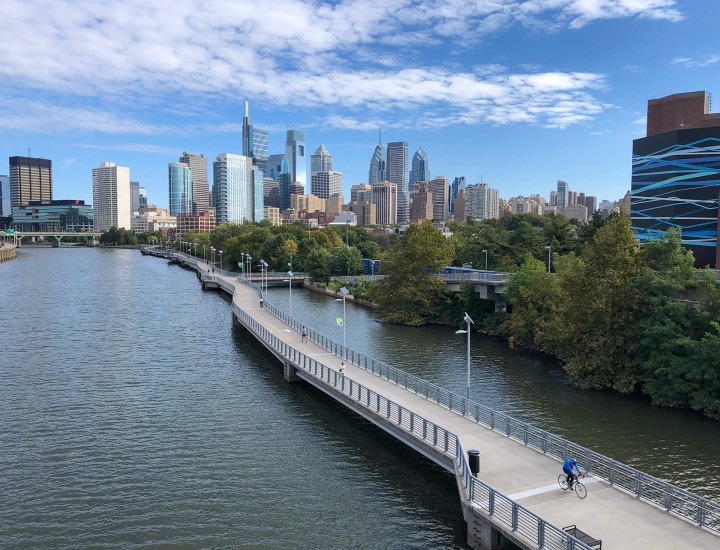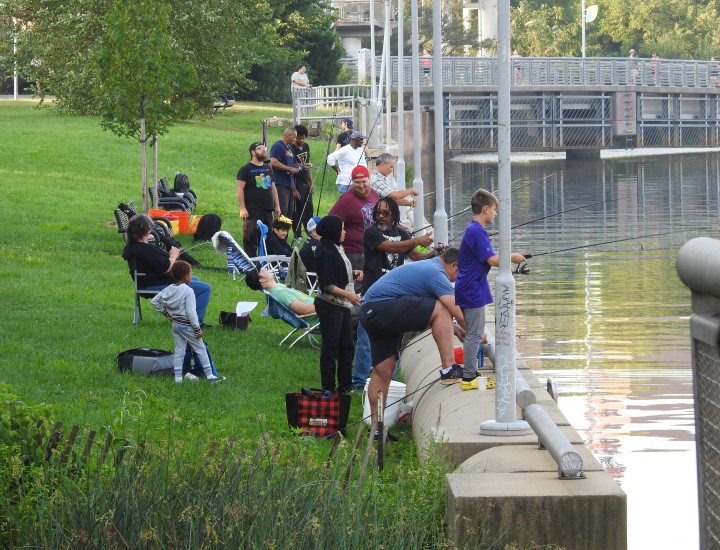Highlighting the Lenni-Lenape
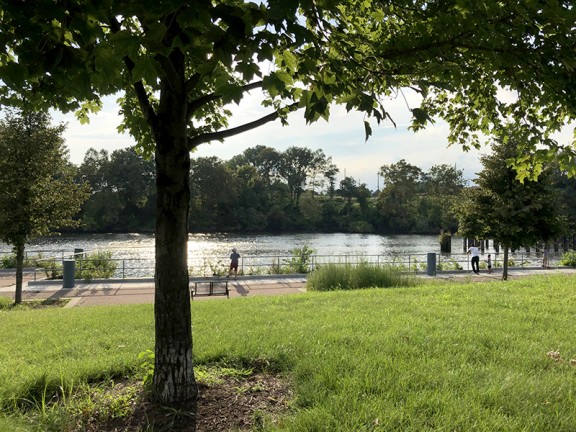
The Delaware River Watershed, which includes the Schuylkill River, has been home to the Lenni-Lenape for over 10,000 years. The Lenni-Lenape, which translates as “Men of Men” or “Original People”, are considered to be among the most ancient of the Northeastern Nations. They were “warriors and diplomats, often keeping the peace and mediating disputes between [their] neighboring Native Nations and were admired by European colonist for [their] hospitality and mediation skills.” *
The Lenape were comprised of three clans: Wolf, which occupied land around the northern portion of the Delaware River to the confluence of the Lehigh and Delaware Rivers; Turtle, which occupied land south of the confluence down to Philadelphia; and Turkey, which occupied land south of Philadelphia to the Delaware Bay. “Each Lenape village was independent of the others and followed its own rules. A trusted spokesman, or sachem, was ‘in charge’ of each village; however, Lenape villages were democratic, and every member had a voice in important decision making. The role of the sachem was important for the village, though, in both times of peace and war. Eventually, Europeans began colonizing the Delaware River valley, and as relations between Native Americans and European settlers soured, these sachems assumed a larger role in village leadership, becoming recognized as chiefs.” **
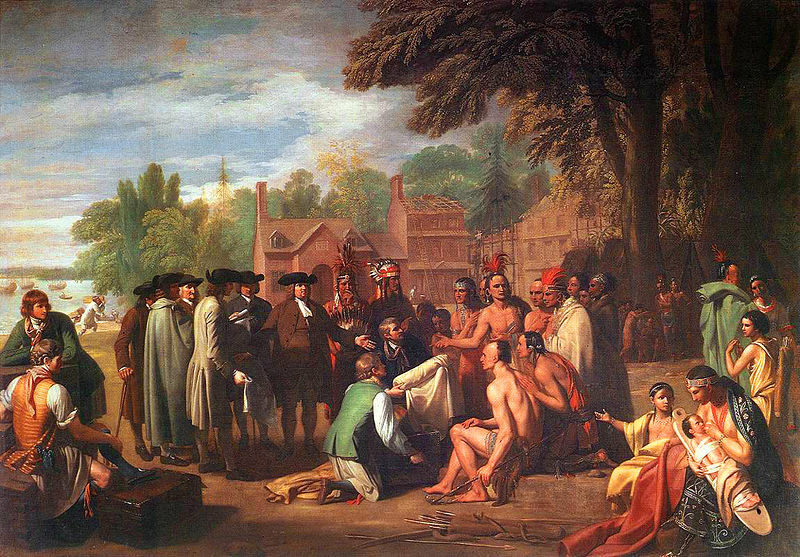 Penn's Treaty With the Indians. Painting by Benjamin West. Image from Wikipedia.
Penn's Treaty With the Indians. Painting by Benjamin West. Image from Wikipedia.
Chief Tamanend, for whom a statue stands at Front and Market Streets, was the leader of the Lenape Turtle clan when William Penn arrived in 1682. The two men signed many agreements, including the “Treaty of Amity and Friendship” at what is now Penn Treaty Park on the Delaware River. Other agreements between the Lenape and the colonists included land purchases, and according to the Monroe County Historical Association, “Penn traded guns, clothing, pipes and tobacco, tools, glasses, needles, blankets, and bells for the four parcels of land that would become Pennsylvania.” ***
As more Europeans settled in the area, the Lenape were driven westward to Indiana, Kansas, Oklahoma, and other parts of the United States and Canada. Some Lenape stayed and maintained their homes along the Delaware in secret. “Hiding their heritage, they avoided discovery by both the government and their neighbors for more than two hundred years”.****
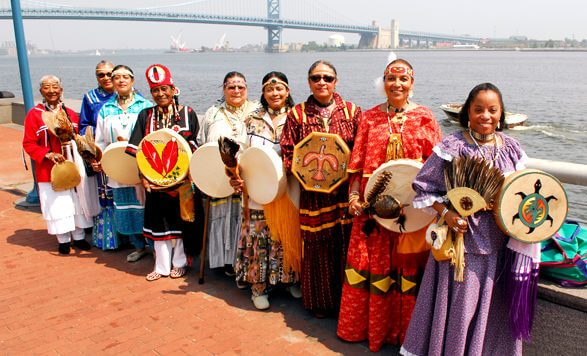 Image from PHLCVB
Image from PHLCVB
Recently, the Lenape Nation of Pennsylvania has come forward to tell their stories and to help keep their hidden history alive. Every four years since 2002, the Lenape Nation of Pennsylvania and its neighbors embark on a journey down the Delaware River called the Rising Nation River Journey, which is meant to promote awareness of the Lenape people living in Pennsylvania and to “promote the awareness that the state of Pennsylvania is one of only a few states in this country that does not recognize its indigenous people, and to invite citizens and political representatives to sign this treaty so that we may fulfill the dream envisioned by our founding fathers, William Penn and Chief Tamanend.” ***** The public is invited to participate in the River Journey. If you are interested in getting involved, email Adam Waterbear DePaul, the Lenape Nation’s story keeper at [email protected].
In 2008, the Lenape Nation of Pennsylvania collaborated with the University of Pennsylvania’s Penn Museum on the exhibition Fulfilling a Prophecy: The Past and Present of the Lenape in Pennsylvania. The exhibition used oral histories, family heirlooms, and photographs to tell the story of the Lenape’s survival in their homeland. You can still view the exhibition at the Lenape Nation of Pennsylvania’s Cultural Center and Trading Post in Easton, PA and here.
In October 2020, the Friends of Wissahickon held a virtual Valley Talk to hear Lenape Nation of Pennsylvania council members discuss the past and present of the Lenape in Pennsylvania. Watch the Valley Talk here.
Resources and more information:
- *https://nanticoke-lenape.info/history.htm
- **/***https://www.monroehistorical.org/articles_files/110105_wmpenn.html
- ****https://www.lenape-nation.org/2nd-project
- *****https://www.lenape-nation.org/1st-project
- https://www.lenape-nation.org/
- http://delawaretribe.org/culture-and-language/
- http://www.penntreatymuseum.org/
- https://fow.org/walking-the-lenape-way/?bblinkid=247679412&bbemailid=28231167&bbejrid=1829629019
- https://www.bartramsgarden.org/event/the-original-people-book-signing-and-walking-virtual-tour/
- https://collaborativehistory.gse.upenn.edu/stories/original-people-and-their-land-lenape-pre-history-18th-century
- https://blog.phillyhistory.org/index.php/2010/06/as-long-as-the-creeks-and-rivers-run-traces-of-the-lenni-lenape-part-ii-along-the-schuylkill/
- https://hiddencityphila.org/2014/05/respectfully-remembering-the-affable-one/
- https://whyy.org/articles/national-museum-of-the-american-indian-treaty-exhibition-featuring-penn-treaty-museum-artifact-opens-in-september/
